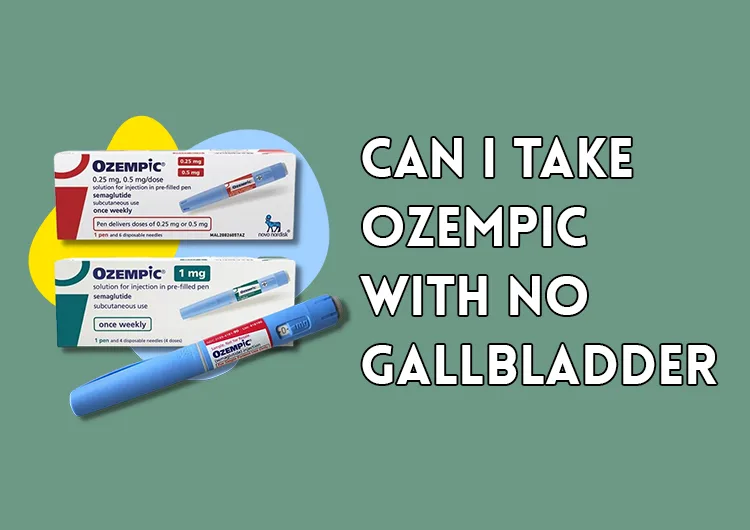Ozempic is a medication designed to lower blood sugar levels in adults with type 2 diabetes by mimicking the natural functioning of GLP-1 hormone, an endogenous compound in their bodies.
Additionally, this drug has also been associated with gallbladder issues, and those suffering may be eligible to file a claim against its manufacturer.
What is Ozempic?
Ozempic is a prescription medication designed to manage adult-onset diabetes. It works by helping to control your blood sugar levels after meals, helping prevent weight gain, and lowering blood pressure. Ozempic comes in both 1-mg and 2-mg dose pens; starting off low dose and gradually increasing dosage every four weeks until reaching the desired level – taking note of instructions listed on the label is vital!
Clinical studies revealed that some individuals taking Ozempic experienced heartburn; this side effect should subside with continued use; if severe discomfort develops, seek medical advice immediately.
Ozempic may cause low blood sugar (hypoglycemia). Consult with your physician if you have kidney or liver disease, pancreas problems, or any other medical condition, as low blood sugar may make concentration difficult and lead to dizziness or lightheadedness; headaches, drowsiness, irritability/mood changes, shakiness, or weakness could result.
What are the Side Effects of Ozempic?
Ozempic may cause various side effects, including nausea, vomiting, diarrhea, constipation, and bloating. It may also affect liver function in some individuals, so it’s important to monitor any changes or report any to your physician as soon as they occur.
Ozempic is one of the many GLP-1 receptor agonists used to produce insulin and thus lower blood sugar. They also slow digestion, suppress hunger, and facilitate weight loss – however, they’re associated with an increased risk of gallbladder disease and gallstones.
Gallstones are hard deposits that form within the gallbladder and can be extremely painful. Gallstones typically consist of cholesterol and bilirubin, by-products from red blood cell breakdown that build up over time.
In March 2022, the FDA revised Ozempic’s warning label to indicate its risks associated with gallbladder problems; unfortunately, this came too late for many patients who had already developed gallstones and required surgery (cholecystectomy). If you experienced gallstone formation after taking Ozempic, you may qualify to file a suit; Zanes Law can provide advice regarding your potential options for filing such claims.
Can I Take Ozempic with Other Medications?
Ozempic, which can be administered via injection, may help manage type 2 diabetes and promote weight loss when combined with lifestyle modifications. But before beginning treatment, it’s essential that any potential drug interactions be discussed with your healthcare provider first.
Ozempic, used in combination with insulin or sulfonylureas (both medications used to lower blood sugar), may increase your risk of low blood sugar, which may be difficult to detect and may lead to serious symptoms including shaking, sweating and rapid heartbeat, as reported by Verywell.
Stomach-related side effects, such as delayed stomach emptying and gastroparesis – which causes discomfort in the GI tract – may also arise, though these side effects tend to be less prevalent than those related to insulin therapy.
Ozempic should not be prescribed to patients who suffer from gallbladder issues as its use could worsen cholecystitis and other gallbladder diseases. However, patients in such circumstances should still speak to their physician regarding possible alternatives that wouldn’t increase the risk of gallbladder diseases, such as other forms of diabetes medications that don’t increase risk.
Can I take Ozempic with Food?
Ozempic can help adults living with type 2 diabetes manage their blood sugar levels through lifestyle adjustments like diet and exercise in conjunction with medication like Ozempic. The medication works by increasing how much insulin your body produces after meals while slowing how quickly food moves through your stomach.
As with any medication, Calibrate should be discussed with a healthcare provider to avoid foods that might worsen its potential gastrointestinal side effects, including gas and stomach discomfort. Your healthcare provider may suggest prioritizing foods rich in proteins, fiber, and healthy fats while limiting heavily processed or sugary food items.
Avoid dairy and fatty foods in the evening as these can delay gastric emptying, leading to nighttime nausea, heartburn, or belching. Also, try to limit alcohol and smoking intake as much as possible; talk with your physician if you have had pancreatitis in the past or other medical issues like kidney disease, liver disease, or gallstones; do not take this medication if you have certain allergies or have ever been diagnosed with medullary thyroid carcinoma – a rare type of thyroid cancer.
